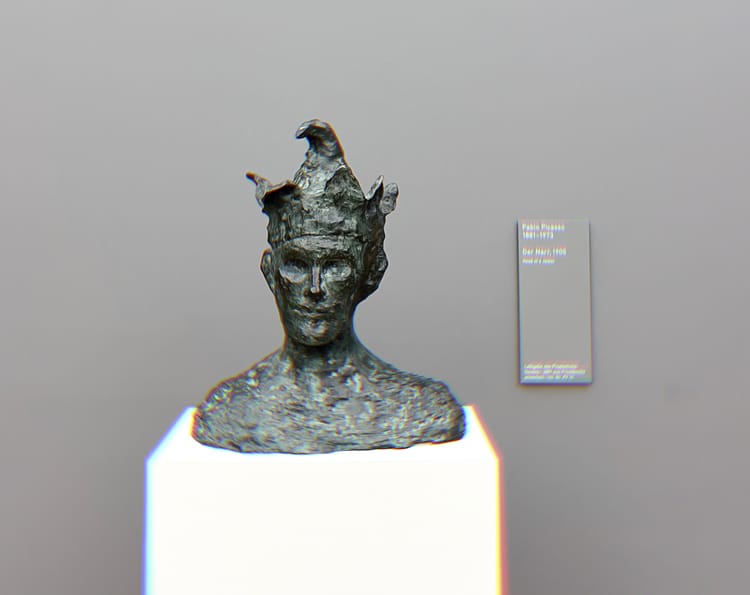Live Immediately

History repeats itself, and like a mirror, so do the trends we see in society. Our focal points shift with the rise of one and the fall of another, but if you hold on to your jeans long enough, they might just come back in style. Nonetheless, information now moves at such a quick pace that it can be difficult to keep up with the times, which isn’t necessarily a good thing. Maintaining a sense of time demonstrates one’s ability to allocate attention towards what is valuable. When we fall behind our own time, value becomes displaced. To make time our own is to take ownership of the time we have. In other words, we govern our lives by the way we utilize our time. By doing so, we place a worth on our time by determining what is and what is not “worth the time.” Worth and value operate similarly, where value is then based on the perception of worth. To value time is to determine that one’s time is worth being valued. With this, there is another key factor: attention. Without giving our attention, it does not become valuable. Nonetheless, this is a long-winded way to say that the maintenance of our own time determines its outcomes. What we value, or what we give our time and attention to, shows our interests, passions, and developments. Likewise, when we don’t maintain this sense of time, then we cannot appropriately allocate our attention. Attention, time, and value are the three constants we have that behave as human currency. These behave in a combination of ways:
- Giving something our attention and time makes it valuable. (Attention + Time = Value)
- Valuing our time makes us attentive (Value + Time = Attention)
- Valuing our attention gives us time (Value + Attention = Time)
These combinations are played out in several ways when the ownership of any one of these constants is not in our own hands. For instance, giving up ownership of time displaces value and attention. Likewise, giving up ownership of attention displaces value and time. Current society demonstrates a lack of ownership in all three, where attention is increasingly demanded by our tertiary lives as opposed to our immediate lives. We can consider our immediate lives to consist of friends, family, work, local gathering spaces, and hobbies, and consider our tertiary lives to be social media, the news, television, “celebrity culture,” and trends.
Our tertiary lives are relatively new to society, developing alongside the advancements in technology. Creating virtual and online worlds has thus paved the way for tertiary lives to develop and expand. However, what must be separated is the immediate living life versus the tertiary non-living life. As we have evolved to exist in the natural world, technology has come to exist as an extension of our own evolution. This is something else entirely, as the tertiary appears to be more fleeting due to the quickness in pace at which information is distributed, but the immediate is far more fleeting. Tertiary lives are an additional layer of our reality, and forming attachments to this layer separates one from their immediate life, essentially ignoring true reality. In forming these attachments, one has placed ownership of their own human currency in their tertiary life, one that is not cemented in natural reality. What is worth noting is the secondary plane, where events that occur in our immediate lives for entertainment (sports, concerts, theatre, movies) are discussed in the tertiary. However, they are kept in the immediate, as these are all things people experience in real life. The secondary medium exists to form a community around real events so that a large community can be united. Despite this, placing all of your currency in the secondary plane of the event as opposed to the immediate, spirals into the tertiary. The secondary platform serves to extend the immediate; however, if one skips the immediate and goes straight to the secondary, then they have essentially replaced their immediate.
In giving up the currencies of time, value, and attention to the tertiary life, one no longer has these to operate in their immediate life. This loss has detrimental implications for the individual. For instance, when one loses ownership of attention, they are no longer able to guide and maintain their interests, nor will they be able to determine how to spend their time or what they value (due to the above simple equations). Furthermore, when attention is governed by the tertiary, the tertiary can then begin to influence the other currencies, such as time and value. Where time becomes misplaced (spending more time in the tertiary life) as well as value (placing value on tertiary things such as social media, forming parasocial relationships, and obsessing over trends). When one maintains their currencies, they can put their efforts towards the development of their immediate life, strengthening relationships, building community, developing hobbies, and achieving goals.






Member discussion